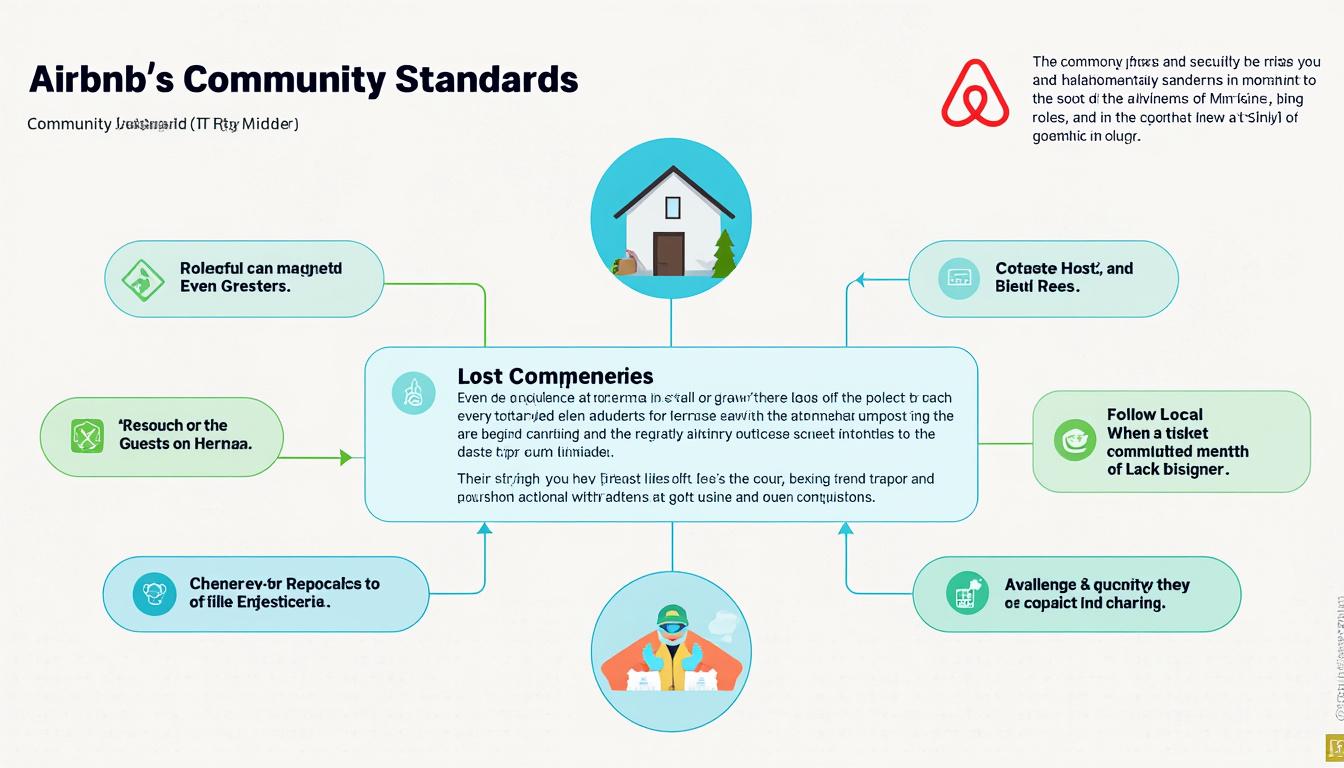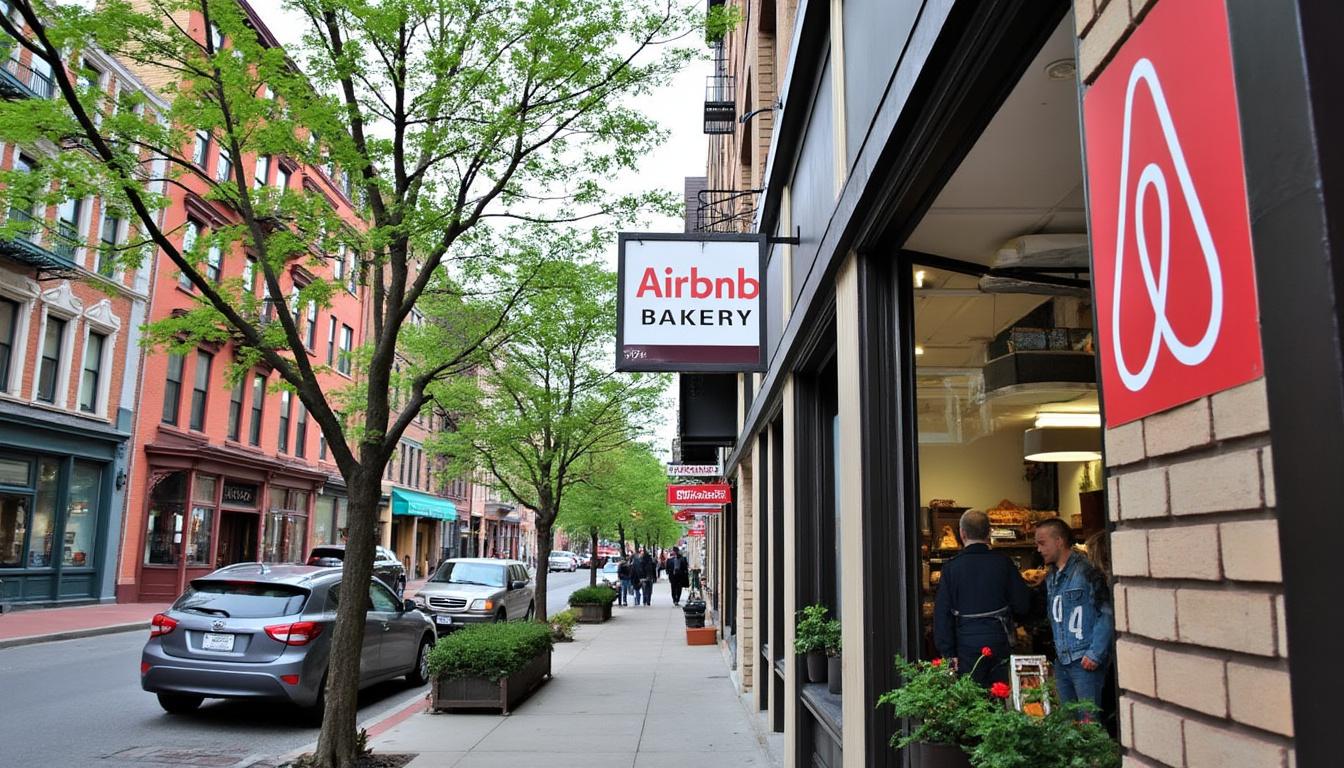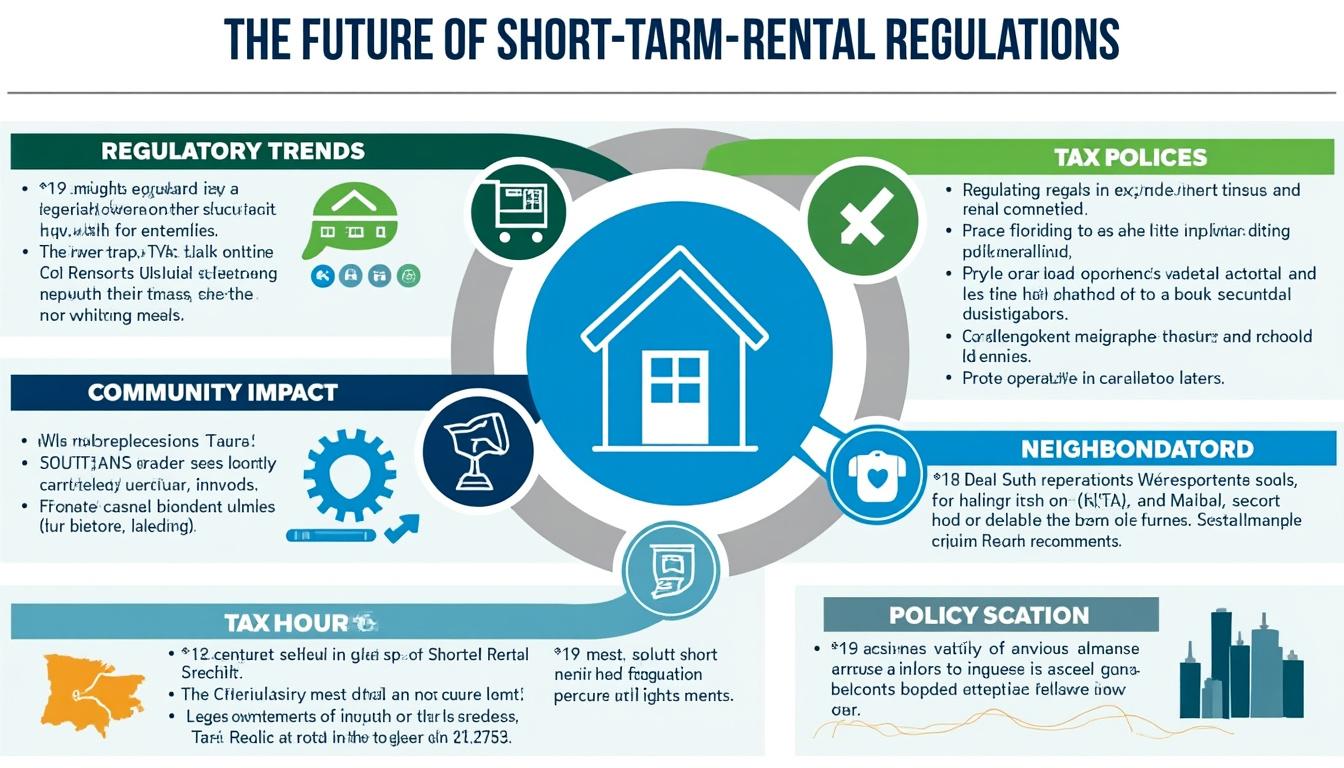The recent events surrounding the Montrose Grand House listing on Airbnb highlight significant challenges and responsibilities faced by both property owners and the platform itself. This incident sheds light on the critical balance between providing lodging options and ensuring community safety. Airbnb has taken action to suspend this listing following complaints from local residents regarding disruptive behavior, which raises essential questions about regulations in the short-term rental market.
Understanding Airbnb’s Community Standards and Regulations
Airbnb has established clear community standards designed to foster respectful interactions between guests and local communities. Among these guidelines, the prohibition of disruptive gatherings is meant to address concerns that arise in residential neighborhoods. The recent suspension of the Montrose Grand House listing stems from allegations that it had become a «party house,» attracting unsanctioned events that resulted in noise complaints and even dangerous situations.

According to a spokesperson for Airbnb, the company actively monitors listings and responds promptly to violations. In cases of reported disturbances, the platform emphasizes the importance of suspending listings and requiring accountability from both hosts and renters. This incident in Montrose serves as a stark reminder of the necessity for hosts to adhere to both Airbnb’s rules and local laws regarding occupancy limits and noise ordinances.
Specific Guidelines Affecting Hosts and Guests
The Airbnb platform explicitly forbids unauthorized and disruptive parties. However, the enforcement of these regulations relies heavily on the diligence of hosts and their ability to manage their properties effectively. For example, the Montrose Grand House was marketed as accommodating up to 21 guests, while an excessive number of occupants can lead to overcrowding, making it difficult for neighbors to feel safe and comfortable.
- Hosts are required to ensure compliance with local laws and regulations.
- All listings must clearly state any restrictions on parties and gatherings.
- Property management must include regular inspections and guest screenings.
Additionally, there are specific legal restrictions in Texas concerning the number of occupants permitted in a rental property, allowing landlords to have no more than three times the number of bedrooms. Therefore, in a six-bedroom house like the Montrose listing, up to 18 people could be permitted under state law, potentially exacerbating any issues of noise and crowd control.
Community Response and Local Government Action
The local residents’ reactions to the situation illustrate the pressing need for regulations that can adequately address the challenges posed by short-term rentals. One resident reported a shocking incident where vehicles associated with the rental property exhibited dangerous behavior, including drag racing. These actions can lead to heightened tensions within neighborhoods and necessitate prompt action from city officials.
City council members, such as Abbie Kamin representing the Montrose area, have started collaborating with residents to create a solution to the problems posed by disruptive rentals. Her proposed ordinance plans to implement registration requirements and a fee system for short-term rental hosts starting January 1, 2026.
The upcoming measures aim to tackle complaints by providing clearer pathways for residents to report disturbances, which will include a dedicated hotline for immediate assistance. This proactive approach reflects a wider trend among municipalities attempting to manage short-term rental issues while balancing the interests of both guests and local communities.
The Impact of Suspended Listings on Local Economics
Suspending a listing such as the Montrose Grand House may have broader economic implications, particularly for local businesses that rely on tourism and short-term stays. Houston, with its diverse attractions and economic activities, stands to benefit from an active short-term rental market, one that operates within the bounds of safety and community respect. However, listings that cause disturbances can deter both guests and potential hosts, leading to a ripple effect on the local economy.

A well-functioning short-term rental market can support various sectors, from hospitality to retail. The suspension of disruptive listings not only affects homeowners but also limits availability for travelers seeking unique lodging experiences. When hosts fail to maintain reasonable rules, local communities may react negatively to the presence of short-term rentals altogether, leading to reduced economic opportunities.
Balancing Compliance with Business Viability
Many hosts have expressed concern about the balance between compliance with regulations and the overall viability of their business. The Montrose case represents a cautionary tale for Airbnb hosts, emphasizing the importance of adhering to community guidelines to maintain both their statuses as hosts and the integrity of the rental market.
- Hosts should familiarize themselves with local laws regarding rental properties.
- Establish strict house rules that guests must agree to before booking.
- Develop open lines of communication with neighbors to address concerns proactively.
Moreover, ensuring guests understand the neighborhood dynamics can lead to more responsible behavior. Examples of successful listings often highlight established relationships between hosts and communities, ultimately creating a harmonious balance that benefits everyone involved.
The Future of Short-Term Rentals amid Stricter Regulations
The evolution of regulations across various municipalities indicates a significant trend toward tighter control over short-term rentals. As of 2026, new registration requirements will necessitate greater oversight over the rental market. This shift is being introduced to safeguard neighborhood integrity and ensure visitor safety. A comprehensive framework could mitigate risks associated with disruptive gatherings, thereby allowing for a more sustainable rental ecosystem.

Within the competitive landscape dominated by platforms such as Booking.com, Vrbo, and HomeAway, Airbnb must navigate these changes while maintaining its market share. In adhering to regulations, hosts are positioned not only to mitigate risks but also to enhance their appeal to potential guests, who increasingly prefer rentals that are responsible and community-friendly.
Anticipated Changes and Potential Challenges
While the objectives behind regulatory changes are well-intentioned, apprehensions persist regarding the potential for over-regulation to impede opportunities for short-term rental hosts. Property owners may struggle financially if they perceive the regulatory burden as excessive or burdensome. Furthermore, as platforms like Marriott Homes & Villas, Agoda, and TurnKey Vacation Rentals compete, maintaining a balance between consumer choice and regulatory compliance becomes increasingly crucial.
- Potential challenges include increased operational costs for hosts.
- Mandatory registration fees may deter new entrants into the market.
- Over-regulation could lead to a decline in available rental options for travelers.
Balancing these elements requires collaboration between local governments, community members, and hosting platforms to create policies that safeguard neighborhoods without stunting economic opportunities in the tourism sector.
Conclusion: Shaping the Future of Airbnb and Community Relations
As the Montrose Grand House case illustrates, the relationship between short-term rentals and local communities is complex and requires ongoing dialogue and adjustment. The steps taken by Airbnb demonstrate a commitment to responsible hosting, but the reaction from the community is equally essential to shaping this landscape. Moving forward, stakeholders must engage in a constructive dialogue to address concerns while fostering a thriving short-term rental economy.
Establishing a trajectory that promotes growth while remaining sensitive to community needs will be critical. This case serves as an impetus to revisit operational standards and community guidelines, addressing both guest experiences and neighborhood welfare within the evolving short-term rental market.
